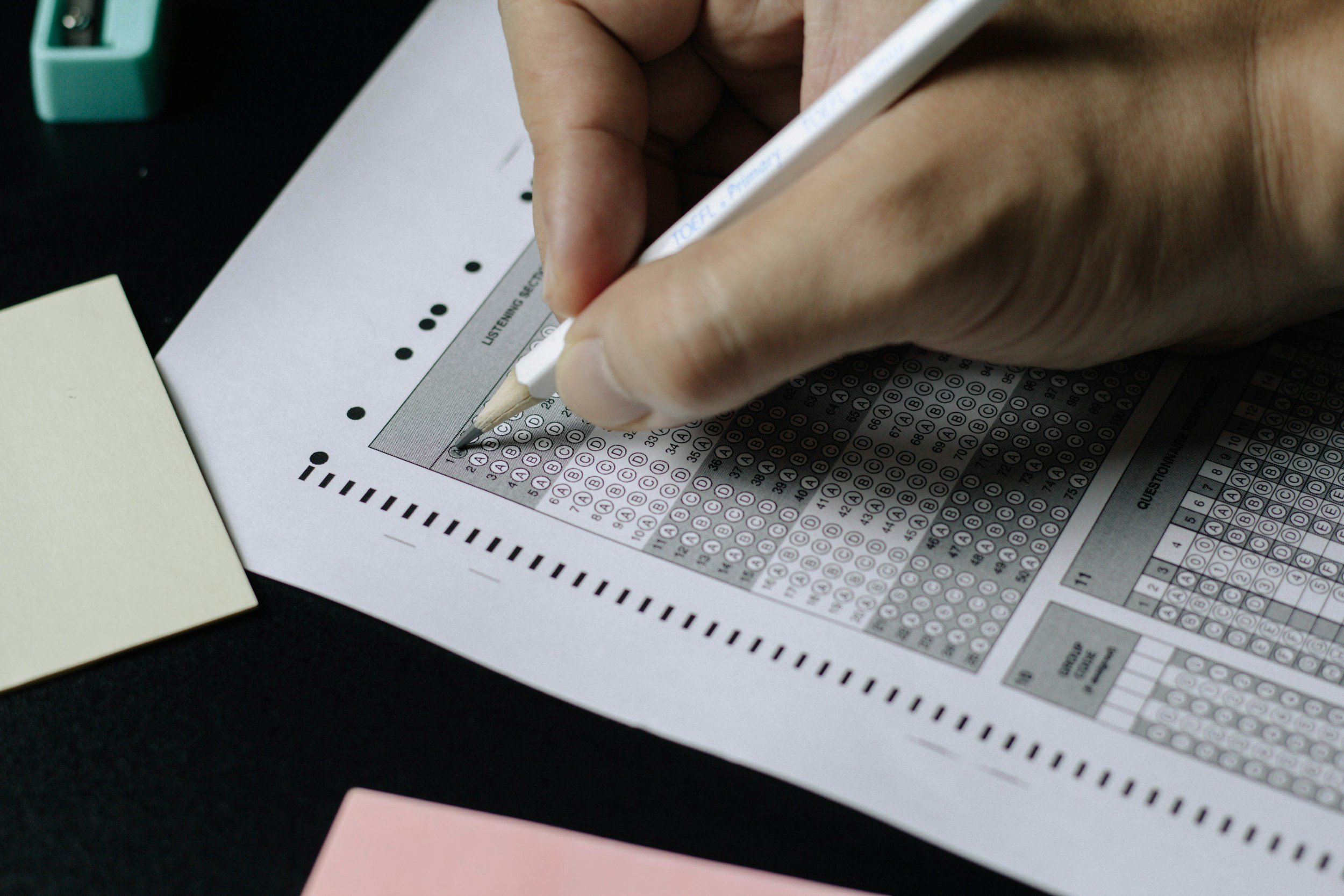Unlocking Future Success: The Importance of Setting Performance Goals in High School
By: Chris Jonas
College Admissions Coach
Prefer to listen to this post? Click below.
Charting the Path: How High School Performance Goals Shape Tomorrow's Success
When I first meet with students and their families as an academic performance coach and college counselor, a common thread emerges: the desire for success. But what is success, and how does one achieve it? Success isn't just about the end goal; it's about the journey, the roadmap, and the mile markers along the way. In high school academics, setting performance goals like targeting a specific GPA or strategically selecting courses is crucial. Let's explore why these elements are pivotal and how they can reshape a student's high school journey and beyond.
1. Clarity of Vision: Performance goals serve as a compass, providing direction. Just as a traveler wouldn't set out without a destination, students shouldn't progress through high school without clear academic targets. Aiming for a specific GPA, for instance, gives students a tangible number to chase. This numerical goal offers clarity, helping students understand where they stand and what they need to achieve.
2. Prioritizing Efforts
When students establish concrete goals like maintaining a 3.7 GPA or enrolling in three AP courses by senior year, they inherently prioritize their efforts. They know where to dedicate more time, which subjects demand extra attention, and when to seek help. Without such goals, students can easily be overwhelmed, not knowing which academic challenges to address first.
3. Building a Competitive Edge
The college admissions landscape is fiercely competitive. Universities look for students who excel academically and demonstrate consistency and an upward trajectory in their performance. Students can present a compelling commitment, drive, and growth narrative by setting and achieving specific performance goals throughout high school.
4. Developing Resilience
Not all goals are easily achieved. Sometimes, a student might fall short of their targeted GPA or struggle in a chosen advanced course. However, these challenges provide valuable life lessons. They teach resilience, determination, and the importance of adaptability. Learning to navigate academic challenges in high school equips students with the tenacity required in college and later life.
5. Informed Course Selection
High school offers many courses, from foundational subjects to specialized electives. Goal-setting encourages students to be proactive and strategic in their course selection. For instance, if a student aspires to study engineering in college, they might prioritize advanced courses in math and science. Such informed decisions ensure that students are adequately prepared for their future academic endeavors.
6. Encouraging Time Management & Organizational Skills
With a clear GPA goal in mind or a set list of courses to conquer, students quickly realize the importance of time management. They learn to juggle assignments, balance extracurriculars, and allocate study hours effectively. These skills are vital for high school and indispensable in college and the professional world.
7. Boosting Self-Esteem and Confidence
Achieving set performance goals provides a sense of accomplishment. Every 'A' on a report card or successful completion of a challenging course reinforces a student's belief in their abilities. This boost in self-esteem and confidence is invaluable, pushing students to set even higher benchmarks for themselves and pursue them zealously.
8. Enhancing Focus and Minimizing Distractions
In today's digital age, distractions are everywhere. However, with clear performance goals, students are more likely to stay focused. They can better resist the pull of social media, video games, or other diversions, understanding the bigger picture and the academic milestones they've set for themselves.
9. Creating Accountability
Goals, especially when shared with mentors, teachers, or parents, create a sense of accountability. Knowing that others know their objectives and are rooting for their success can motivate students to stay on track. This external accountability can be the nudge some students must consistently put in their best effort.
10. Shaping a Brighter Future
Ultimately, the performance goals set in high school have a ripple effect, shaping students' futures. Whether it's gaining admission to a dream college, securing scholarships, or laying the groundwork for a successful career, these high school milestones play a pivotal role.
Mapping the Blueprint for Academic Success:
When I sit across from bright-eyed high schoolers, a question often emerges: “Where do I begin?” Setting performance goals can feel daunting. However, it's more than just aiming for academic laurels. It's about creating a blueprint for success—a roadmap that ensures academic achievements and nurtures personal growth.
11. Fostering Lifelong Learning Habits
Setting performance goals, like targeting a particular GPA or choosing specific classes, instills a love for learning. When students see tangible results from their efforts, they associate hard work with success. This connection fosters a lifelong passion for knowledge and growth. They don't just learn for grades; they learn for the joy of discovery.
12. Cultivating Critical Thinking Skills
Strategically selecting courses encourages students to think critically about their future. If a student aims to major in literature, they might opt for advanced English classes or join a debate club to hone their argumentative skills. Such decisions compel students to analyze their strengths, passions, and future aspirations, sharpening their critical thinking faculties in the process.
13. Embracing a Holistic Approach
A well-rounded education isn't just about core subjects. It's about exploring various disciplines and broadening horizons. By setting performance goals related to course selection, students might venture into fields they hadn't previously considered, such as art, music, or even coding. This holistic approach ensures a diversified skill set and a richer educational experience.
14. Facilitating Constructive Feedback
Performance goals also pave the way for constructive feedback. When students and teachers are aligned on academic objectives, educators can provide tailored guidance to help pupils reach (and surpass) those benchmarks. This continuous feedback loop, rooted in defined goals, results in more targeted and effective learning strategies.
15. Preparing for College Rigor
The leap from high school to college can be immense. However, students who've set and worked towards performance goals are better equipped to handle the rigor of tertiary education. They've already honed their study habits, developed resilience, and learned to manage their time—all essential skills for navigating the demanding landscape of college.
16. Enabling Career Readiness
The decisions made in high school often ripple into professional lives. Students who’ve meticulously chosen courses aligned with their career aspirations have a leg up when entering the job market. They not only have the necessary academic knowledge but also possess a clear understanding of their professional trajectory.
17. Encouraging Peer Collaboration
Performance goals also foster an environment of collaborative learning. Students with similar academic objectives often form study groups, discuss challenges, and share resources. This collaborative spirit not only aids in academic success but also teaches teamwork, a vital skill in almost every professional field.
18. Personal Growth and Self-Reflection
Finally, the journey towards achieving performance goals is also one of self-discovery. Students learn about their strengths, confront their weaknesses, and understand their passions. This period of introspection is invaluable, shaping their identities and guiding their future choices.
In Summation:
Navigating the turbulent waters of high school can feel overwhelming for many. Yet, the process becomes more manageable, purposeful, and rewarding when students anchor themselves with well-defined performance goals. These goals aren’t merely academic targets; they are the pillars that support holistic growth, future readiness, and the blossoming of one's true potential. By consciously setting and working towards these benchmarks, students prepare themselves for academic excellence and a fulfilling life ahead.
When you reflect on your high school journey or the path you wish for a young individual, remember the profound impact of goal-setting. Performance goals are more than mere milestones; they act as lighthouses, guiding students toward their desired destination while helping them avoid the pitfalls and storms that can derail their journey.
The magic truly lies in the deliberate act of setting these goals and diligently pursuing them. The discipline, resilience, and insights gained along the way are invaluable life skills that will stand students in good stead, no matter where their journey takes them next.
Discussion Question:
Join the conversation and participate with the 24/7 College Admissions community by answering the DQs in the comment section below:
Reflecting on the significance of setting performance goals, what has been your personal experience or observation? Do you believe that these goals truly shape a student's future, or are there other factors at play that might be equally, if not more, influential? Share your thoughts and experiences.
Did you know the earlier you start the college application process, the easier it is? If you are ready to start thinking about the college application process, set up a free strategy call with one of our 24/7 College Admissions specialists and learn everything you need to create a successful college application plan for yourself or your teen.












